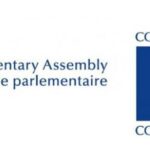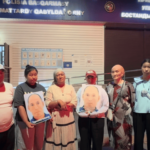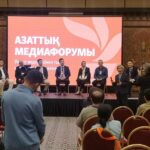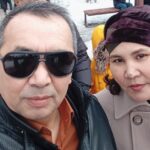




21.07.2014
Members of the NGO coalitions against torture and
other human rights groups in Kazakhstan, Kyrgyzstan and Tajikistan operate in
an increasingly insecure environment. Existing NGO legislation in all three
countries does not provide sufficient safeguards to activists and groups to
freely exercise their human right to freedom of association and the
organizations issuing this statement are concerned that new legislation is
being prepared to further limit the space in which groups and activists can
operate.
Local and international groups issuing this
statement urge lawmakers to closely consult with NGOs in order to ensure that
any legislation affecting civil society associations is strictly in line with
international human rights law.
In all three countries activists, particularly those defending the
rights of detainees held on charges involving “religious extremism,“
“terrorism“ or “undermining national security,“ are in many cases closely monitored by the authorities; and they and
their organizations are targets of restrictive legislation and policies, negative political rhetoric and media
propaganda.
In Kazakhstan,
NGO registration is compulsory. Authorities enjoy wide discretion to deny such
status and to close down groups for alleged violations of the law. The
Constitution of the Republic of Kazakhstan prohibits “unlawful interference” in
the activities of state agencies by public associations without clearly
defining this term. On 4 July 2014, the government response to a
parliamentarian who had suggested the further tightening of regulations
concerning international NGOs in the country, was posted on the website of the Senate of the Kazakhstani
Parliament, and indicated that laws affecting human rights groups are likely to
be tightened even further. According to the response, the Foreign Ministry of
Kazakhstan set up a working group to study the experience of other countries
regarding international NGOs and foreign funding of domestic NGOs. Human rights
activists believe that the stated concern about foreign funding indicates that the
Kazakhstani authorities may follow the example of Russia in their efforts to
further regulate NGO activities, where the recently introduced so-called
“foreign agents law” has been widely
used as a means of clampdown on independent civil society organizations leading
to protracted court battles, huge fines and closure of several NGOs for
refusing to brand themselves “foreign agents.” Another working group set up by the Ministry of
Culture is drafting a law regulating NGO activities that, among other issues,
is expected to further increase the reporting requirements of NGOs operating in
Kazakhstan.
The new Criminal Code, signed by President
Nursultan Nazarbaev on 3 July 2014 and expected to come into force in January 2015, and
other related laws contain provisions that human rights groups believe could be
used to harass NGOs and their members, and to hamper their activities. Among
others, the new Criminal Code classifies “leading, participating in or
financing unregistered or banned associations“ as criminal offences; criminalizes
“unlawful interference” in the activities of state agencies by members of
public associations; and characterizes leaders of public associations as a
separate category of offenders and provides for stiffer penalties for them for
a number of crimes.
In Kyrgyzstan, NGOs have also come under
renewed pressure because parliamentarians recently re-initiated two draft laws
inspired by Russian legislation: one requires NGOs to adopt the stigmatizing
label of “foreign agents” if they receive foreign funds and engage in
“political” activities, the other one prohibits propaganda of so-called
non-traditional sexual relations, thus increasing the vulnerability of groups
defending the rights of sexual minorities. Another draft law that had been put
forward by parliamentarians earlier, but has not yet been adopted,
significantly expanded the definition of “treason” so it is now open to abuse
making it potentially applicable to
human rights activities. The re-introduction of these draft laws to parliament
has been accompanied by negative rhetoric by public figures and has highlighted
the vulnerability particularly of human rights NGOs.
In Tajikistan,
the law “On public associations“ contains broadly worded provisions that have led
to undue interference in the work of NGOs. Inspections have often been followed
by warnings and legal actions against NGOs for alleged violations of the law. .
Courts may apply the disproportionally harsh
sanction of closing down NGOs for any transgression of national law, however
minor, and in numerous cases NGOs have been liquidated on purely technical
grounds, such as the failure to re-register an organization after a change of
legal address. For example, the Association of Young Lawyers
Amparo, a member of the Coalition against Torture in Tajikistan, was closed
down on such grounds in October 2012.
On 24 June 2014, the Constitutional Court of
Tajikistan considered a petition by the Association of Young Lawyers Amparo stating
that parts of the law “On public associations“ were not in line with the
country’s Constitution. While the Court disagreed with Amparo’s reasoning, it
did recognize that the law does not provide a clear list of grounds justifying
the closure of an NGO. Thus, it recommended that Parliament analyze the
legislation and insert appropriate amendments. There are concerns that rather
than strengthening safeguards for NGOs, the new draft laws may be used to limit
NGO activities even further.
In all three countries members of the coalitions against torture and other human rights
groups have faced obstacles to their work that have made it difficult to carry
out their activities effectively. For example, lawyers working on cases of
alleged torture have on numerous occasions been denied access to detainees. This
was also the case in the context of detentions of scores of men and women
following riots in the city of Zhanaozen in the South-West of Kazakhstan in December 2011. The
detainees were reportedly held in overcrowded cells, stripped naked, beaten,
kicked and doused with cold water in the police station’s courtyard in sub-zero
temperatures. Lawyers and independent human rights monitors were either denied
access or not allowed to conduct any private interviews of detainees.
Members of the
coalitions against torture and other lawyers and human rights activists have
themselves been subjected to violence when carrying out their professional
duties. For example, in Kyrgyzstan several
lawyers defending ethnic Uzbeks detained in the context of violence between ethnic Kyrgyz and
ethnic Uzbeks in the southern cities of Osh and Jalal-Abad in June 2010, have
been threatened and physically attacked, even in the courtroom, with no accountability
for the perpetrators.
On 9 January 2014, ethnic Kyrgyz supporters of a Kyrygz man who had allegedly
been killed by ethnic Uzbek Mahamad Bizurukov during the June 2010 violence,
beat the defendant’s lawyer Dinara Medetova, his public defender Dina
Ivashchenko and human rights defender Rysbek Amadaliev in the courtroom of Chuy Regional Court. The court was due to consider Mahamad Bizurukov’s
appeal of a life sentence handed down by Osh Regional Court in 2012. The court
had reportedly ignored Mahamad Bizurukov’s allegation that he had been tortured
in detention to force a confession.
Human rights defenders and other civil society
activists in the three Central Asian states have frequently been labelled as “foreign
agents,“ “traitors,“ or “destructive elements” in public discourse, increasing
their vulnerability. Most recently, the case of Alexander Sodiqov, a PhD
student of Toronto University (Canada), has alarmed activists. He was detained
in Tajikistan’s Gorno-Badakhshan Autonomous Region on 16 June 2014 while he was
conducting academic research for his university project. The next day the
Region’s State Committee for National Security issued a statement accusing him
of spying for foreign governments. Human rights defenders believed the
authorities were using the accusation of espionage as a pretext to suppress independent
research which involves foreign partners and international cooperation. Amnesty
International has adopted him as a prisoner of conscience.
Authorities should respect their obligations under international human
rights law
In its October 2013 resolution on “The rights to freedom of peaceful
assembly and of association“, the United Nations Human Rights Council
highlighted the “importance of civil society, to good governance, including
through transparency and accountability, which is indispensible for building
peaceful, prosperous and democratic societies.“
In his April 2013 report to the United Nations
Human Rights Council, Maina Kiai, the United Nations Special Rapporteur on the
rights to freedom of peaceful assembly and of association, pointed out that
“[a]ssociations, whether domestic- or foreign-funded, should […] be free to promote
their views – even minority and dissenting views, challenge governments about
their human rights record or campaign for democratic reforms, without being
accused of treason and other defamatory terms. Dissenting views should be seen
by the authorities as an opportunity for dialogue and mutual understanding.“
The authorities of Kazakhstan, Kyrgyzstan and
Tajikistan are parties to the International Covenant on Civil and Political
Rights (ICCPR) and have thus committed themselves to ensure that “[e]veryone
shall have the right to freedom of association with others“ (Article 22 of the
ICCPR). Local and international human rights groups issuing this statement urge
the authorities of the three Central Asian states to build on this commitment
and act in its spirit by implementing the following key recommendations as a
matter of urgency. They should:
-
Abolish existing bans on unregistered NGO
activity and ensure that NGOs may obtain registration in a simple, transparent,
expeditious and fair procedure that does not allow for refusing registration on
arbitrary grounds. -
Ensure that no NGO is closed down arbitrarily, and
that any decision to impose a significant penalty on an NGO, such as closure, is
subject to judicial review in accordance with the principles of fair trial. -
Put an end to excessive controls and undue
interference in the work of NGOs, as well as to intimidation and harassment of those
who address torture and other human rights issues. -
Abstain from adopting legislation, and reverse any past legislative
changes, the effect of which is limitation of the right to freedom of
association and expression. -
Actively consult with civil
society in all efforts to amend legislation regulating freedom of association.
For further information, please contact:
Lenur Kerymov, Helsinki Foundation for Human Rights (Poland), Project Coordinator, Mob. +48504080257, email: L.Kerymov@hfhrpol.waw.pl

















